The Blindness
Digital photography. Limited edition prints size 105x112 cm
This artwork was supposed to be part of my diary, but every time I intended to publish it, I realized that I was not ready yet. The signal for me was the interview of Angela Merkel.
While staying in occupied Kherson, I encountered a situation where Russian goods showed up on stores shelves. It was expected, because from the very beginning the occupying forces blocked supplies from the controlled territory of Ukraine. The issue of the origin of products became acute, because me and many other Kherson residents clearly understood that with our money we support those who brought us the “Russian World” with all its attributes: death, suffering, violence and destruction. Or those who resist it. The karmic connection between the sausage and a fragment of a shell that fell somewhere on the positions of the Armed Forces of Ukraine or in the homes of civilians was obvious. Over time, this choice was more and more difficult, as the goods from Ukraine became deficit, and the price was more expensive. However, until the very liberation of the city, I managed to support local producers, and when I managed to get something prewar, Ukrainian-made or imported, I felt a sense of delight.
When I left the shelled Kherson after liberation with my family and settled in the controlled territory, prewar familiar things burst into our lives: hotels, shopping malls, online stores and mail delivery. One of the most vivid memories was a visit to the supermarket, where for the first time in 9 months we saw a huge selection on the shelves. For us it was a shock. We were definitely not ready for it and it took a long time to buy what we came for. Choosing from a large assortment turned out to be a difficult task, from which we have lost the habit. However, along with more choices, new challenges have come into our lives. The first time we were deceived was in December. Then a few more times in January and March. It was quite painful to realize that after one year of the war, many people did not change in any way, that we returned to a world where people are ready to abuse your trust to make money, that arguments about circumstances, ethics, justice, hurt feelings do not find in the minds of people not a single addressee, swallowed up by emptiness. But there was something more to it, because we also encountered quite ethical sellers who came towards us, although they were not obliged to do so. The fact is that behind every unsuccessful purchase there was a desire to buy goods cheaper. As before the war, in the absence of an obvious connection to who we support with our money, we fell into our habitual pattern of buying where the price is cheaper, although we always had to look at who we were buying from. It is quite logical that the difference in the cost of the same product often hides an unethical business that does not pay taxes, treats its staff, the environment and its customers badly. Therefore, when Angela Merkel, when asked why she allowed Russian oil and gas to be bought for many years and did not look for alternatives to it, answers that it was simply cheaper, I am not angry. Of course, I would like to ask her if she thinks that Russian gas turned out to be terribly expensive. That Ukraine is now paying the difference in cost, paying many times more with what cannot be bought for any money. For many years I was as blind as she was, until the war made me see. Our money is not just a medium of exchange. The capital is as blind as those who use it.
While staying in occupied Kherson, I encountered a situation where Russian goods showed up on stores shelves. It was expected, because from the very beginning the occupying forces blocked supplies from the controlled territory of Ukraine. The issue of the origin of products became acute, because me and many other Kherson residents clearly understood that with our money we support those who brought us the “Russian World” with all its attributes: death, suffering, violence and destruction. Or those who resist it. The karmic connection between the sausage and a fragment of a shell that fell somewhere on the positions of the Armed Forces of Ukraine or in the homes of civilians was obvious. Over time, this choice was more and more difficult, as the goods from Ukraine became deficit, and the price was more expensive. However, until the very liberation of the city, I managed to support local producers, and when I managed to get something prewar, Ukrainian-made or imported, I felt a sense of delight.
When I left the shelled Kherson after liberation with my family and settled in the controlled territory, prewar familiar things burst into our lives: hotels, shopping malls, online stores and mail delivery. One of the most vivid memories was a visit to the supermarket, where for the first time in 9 months we saw a huge selection on the shelves. For us it was a shock. We were definitely not ready for it and it took a long time to buy what we came for. Choosing from a large assortment turned out to be a difficult task, from which we have lost the habit. However, along with more choices, new challenges have come into our lives. The first time we were deceived was in December. Then a few more times in January and March. It was quite painful to realize that after one year of the war, many people did not change in any way, that we returned to a world where people are ready to abuse your trust to make money, that arguments about circumstances, ethics, justice, hurt feelings do not find in the minds of people not a single addressee, swallowed up by emptiness. But there was something more to it, because we also encountered quite ethical sellers who came towards us, although they were not obliged to do so. The fact is that behind every unsuccessful purchase there was a desire to buy goods cheaper. As before the war, in the absence of an obvious connection to who we support with our money, we fell into our habitual pattern of buying where the price is cheaper, although we always had to look at who we were buying from. It is quite logical that the difference in the cost of the same product often hides an unethical business that does not pay taxes, treats its staff, the environment and its customers badly. Therefore, when Angela Merkel, when asked why she allowed Russian oil and gas to be bought for many years and did not look for alternatives to it, answers that it was simply cheaper, I am not angry. Of course, I would like to ask her if she thinks that Russian gas turned out to be terribly expensive. That Ukraine is now paying the difference in cost, paying many times more with what cannot be bought for any money. For many years I was as blind as she was, until the war made me see. Our money is not just a medium of exchange. The capital is as blind as those who use it.
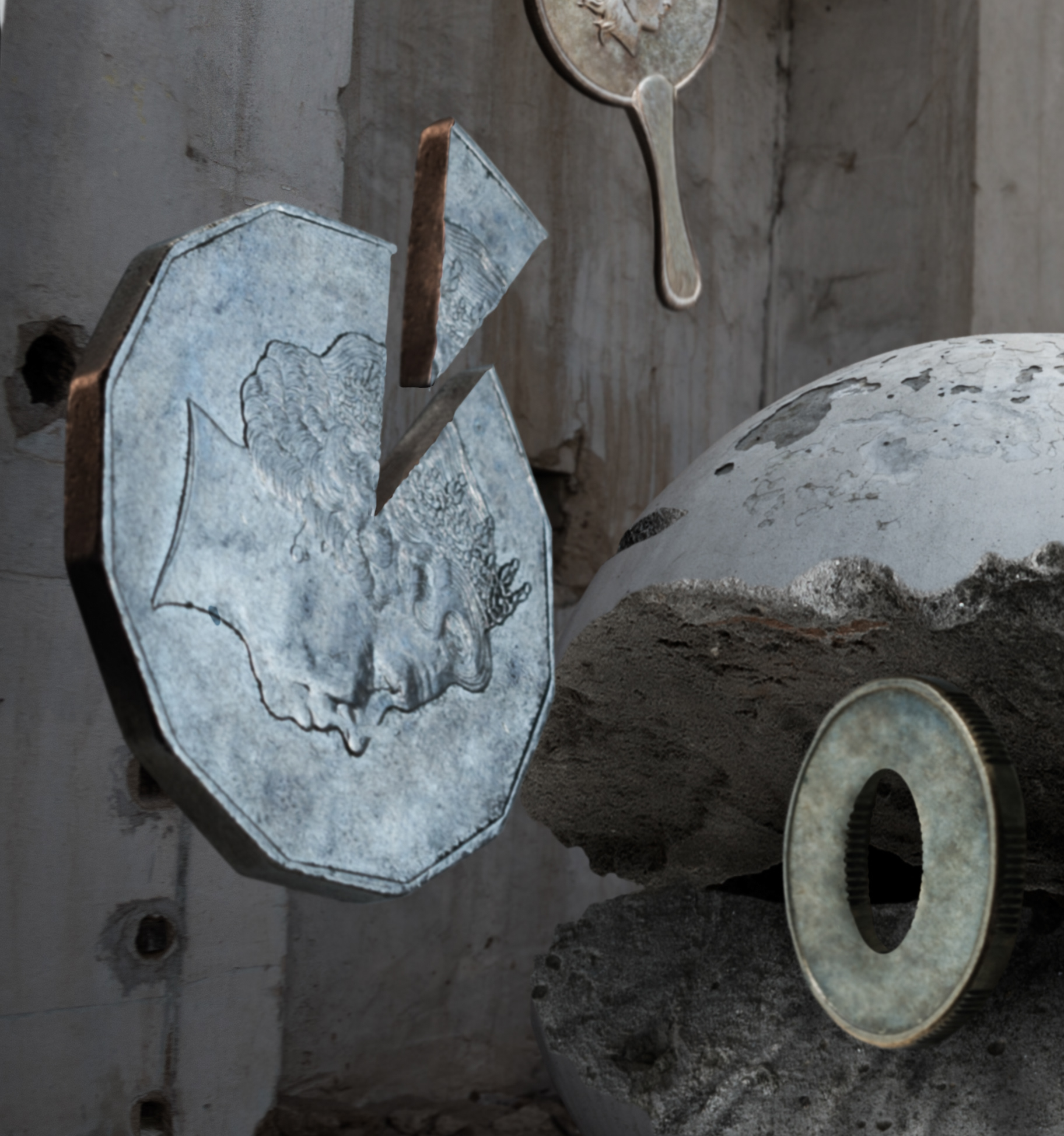
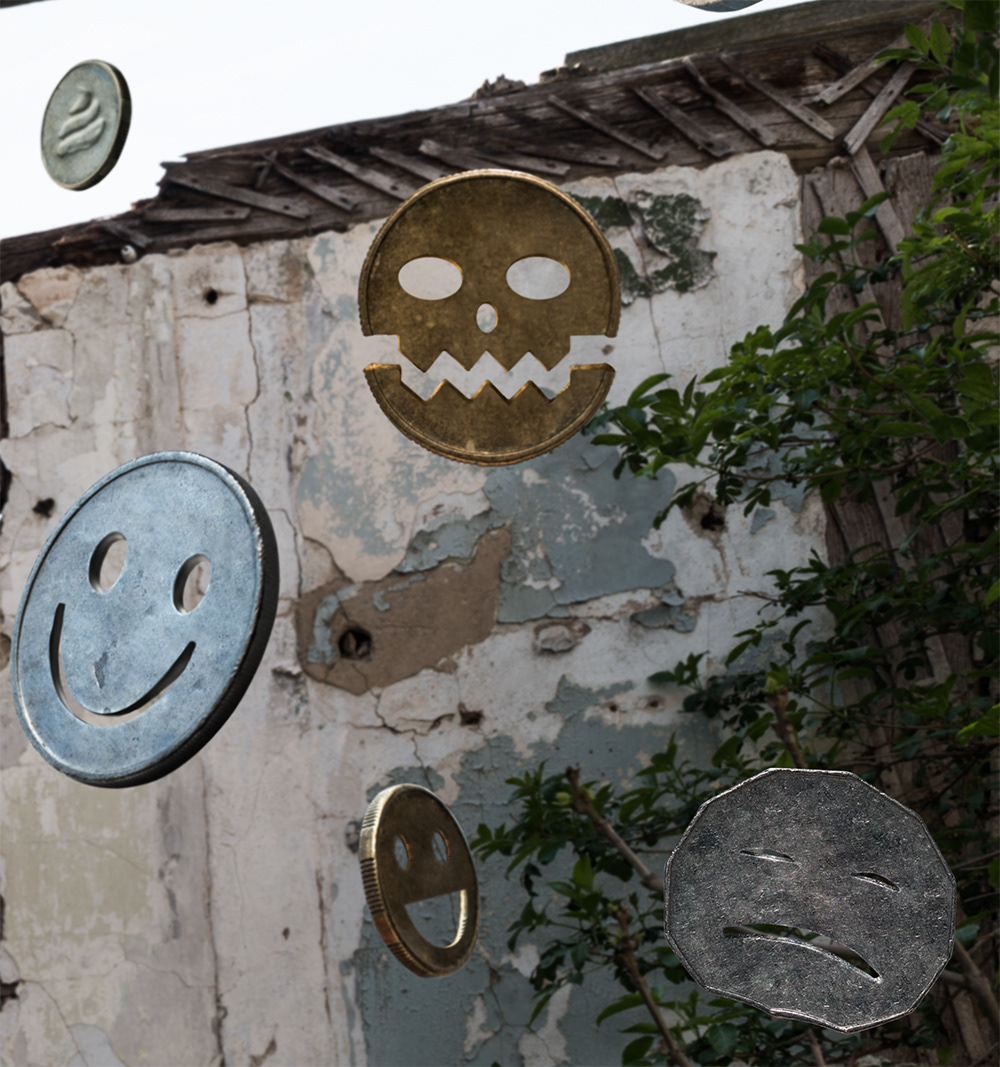
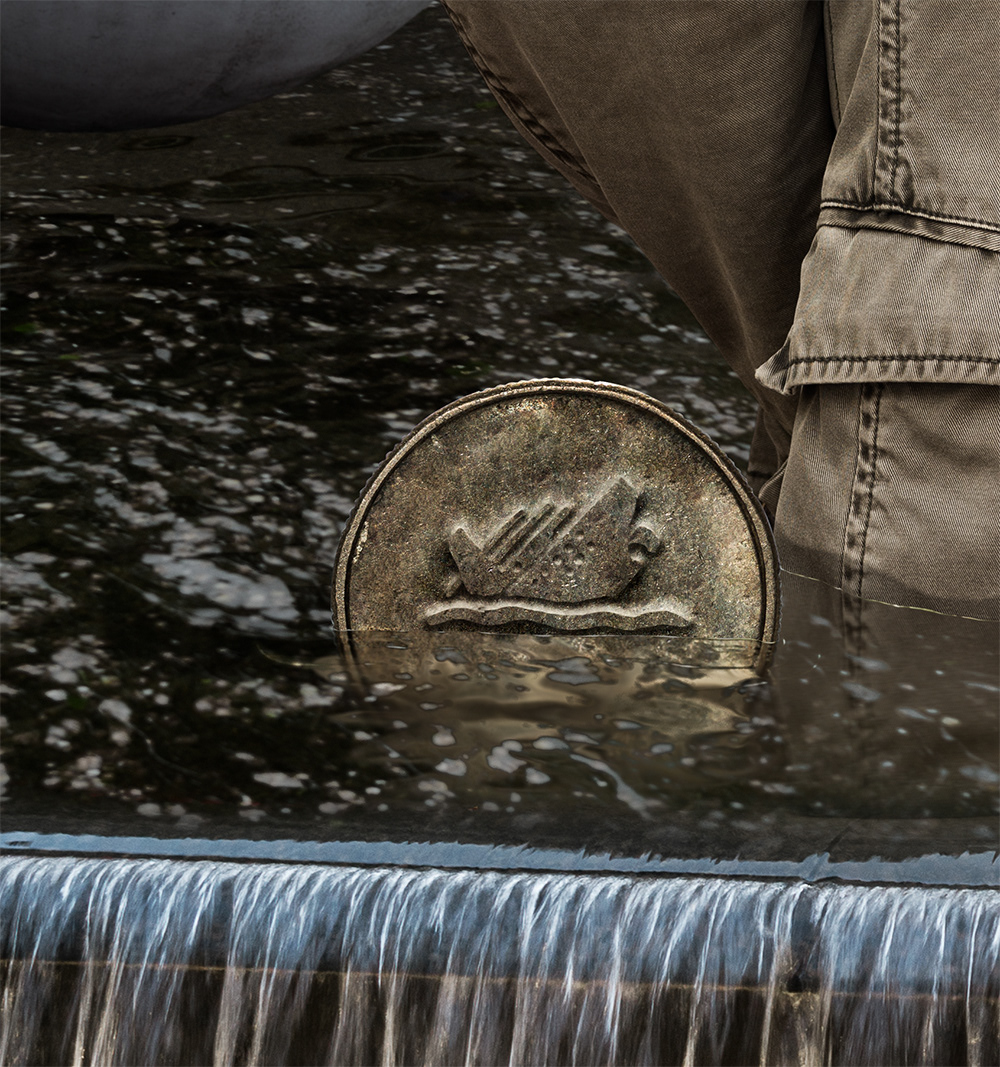
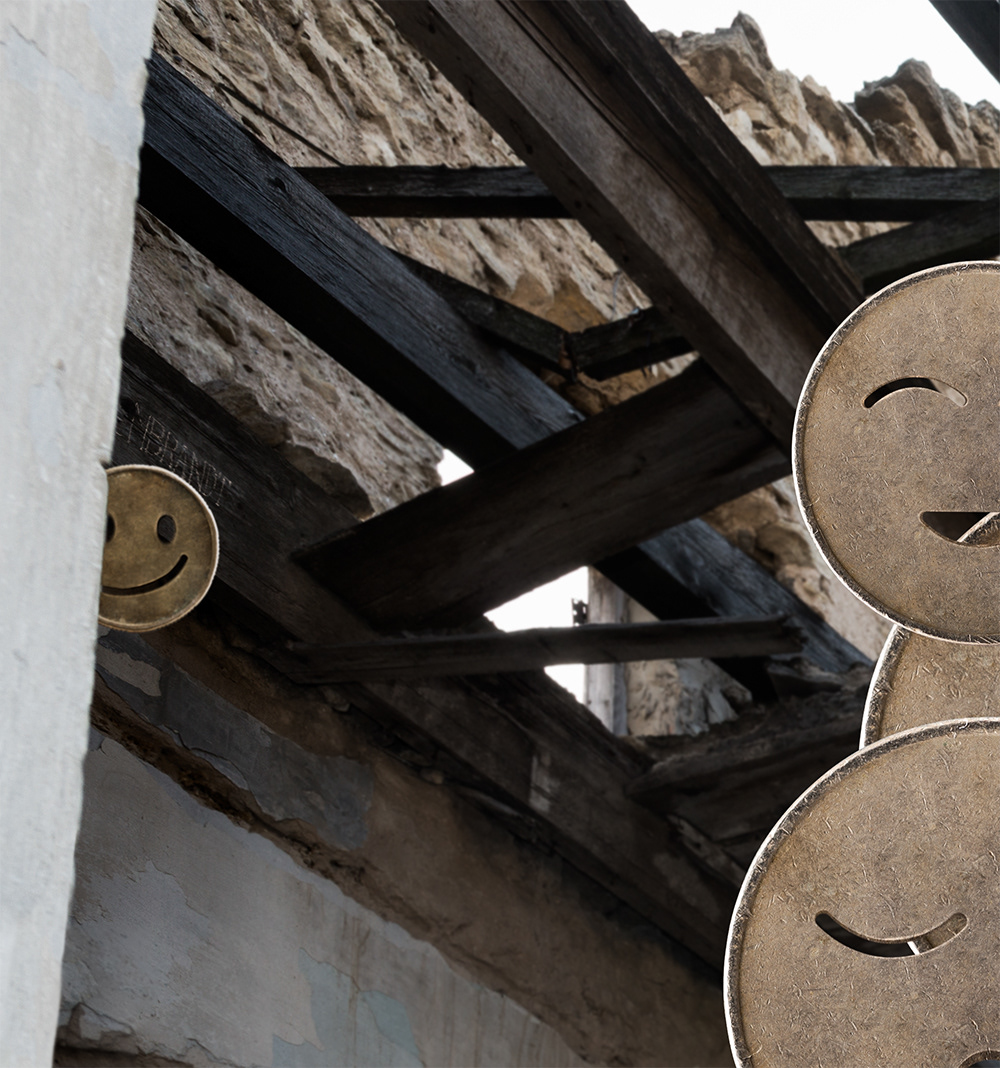
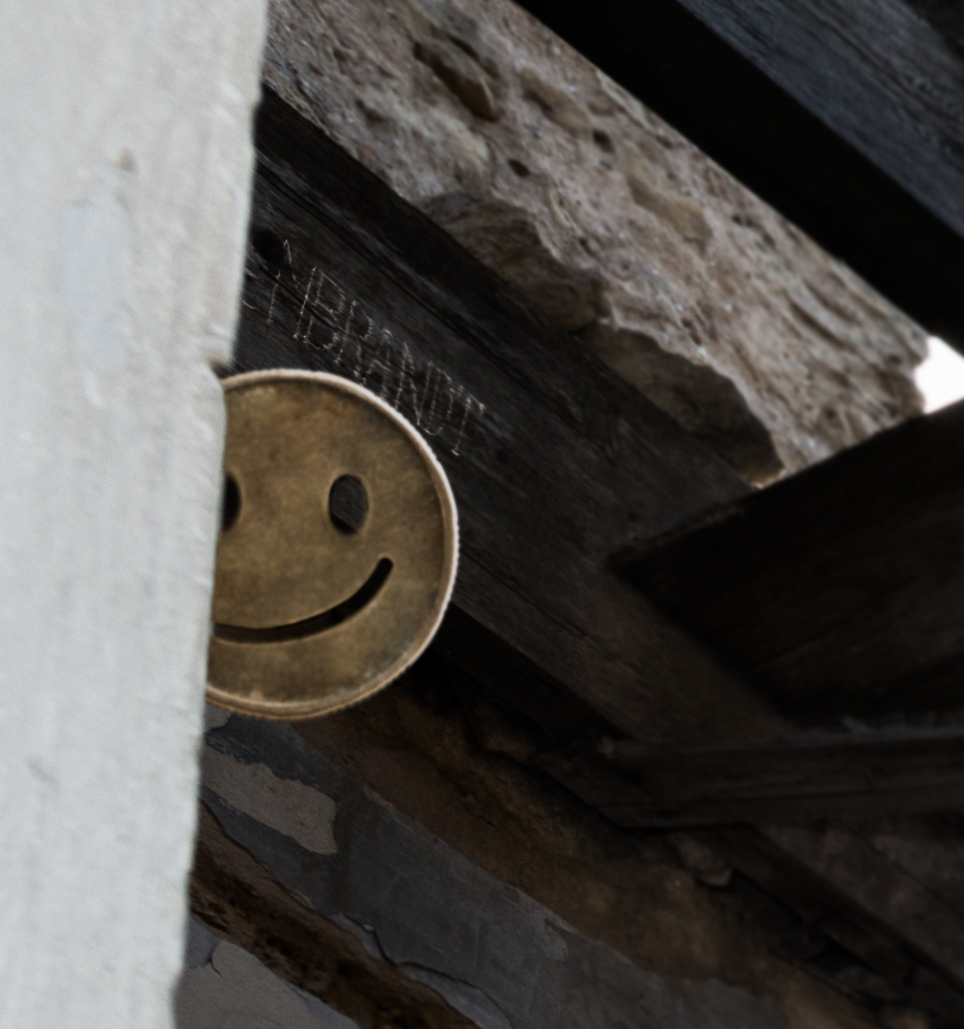
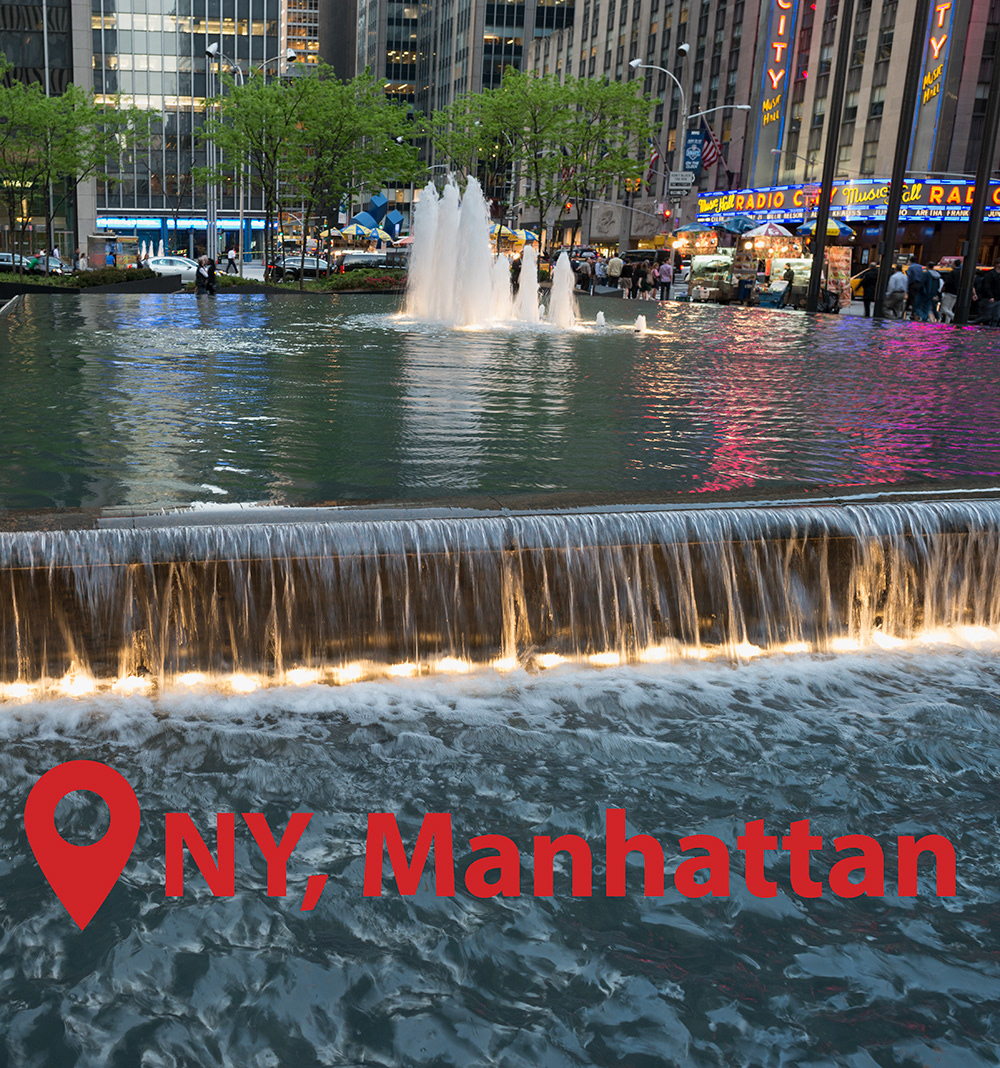
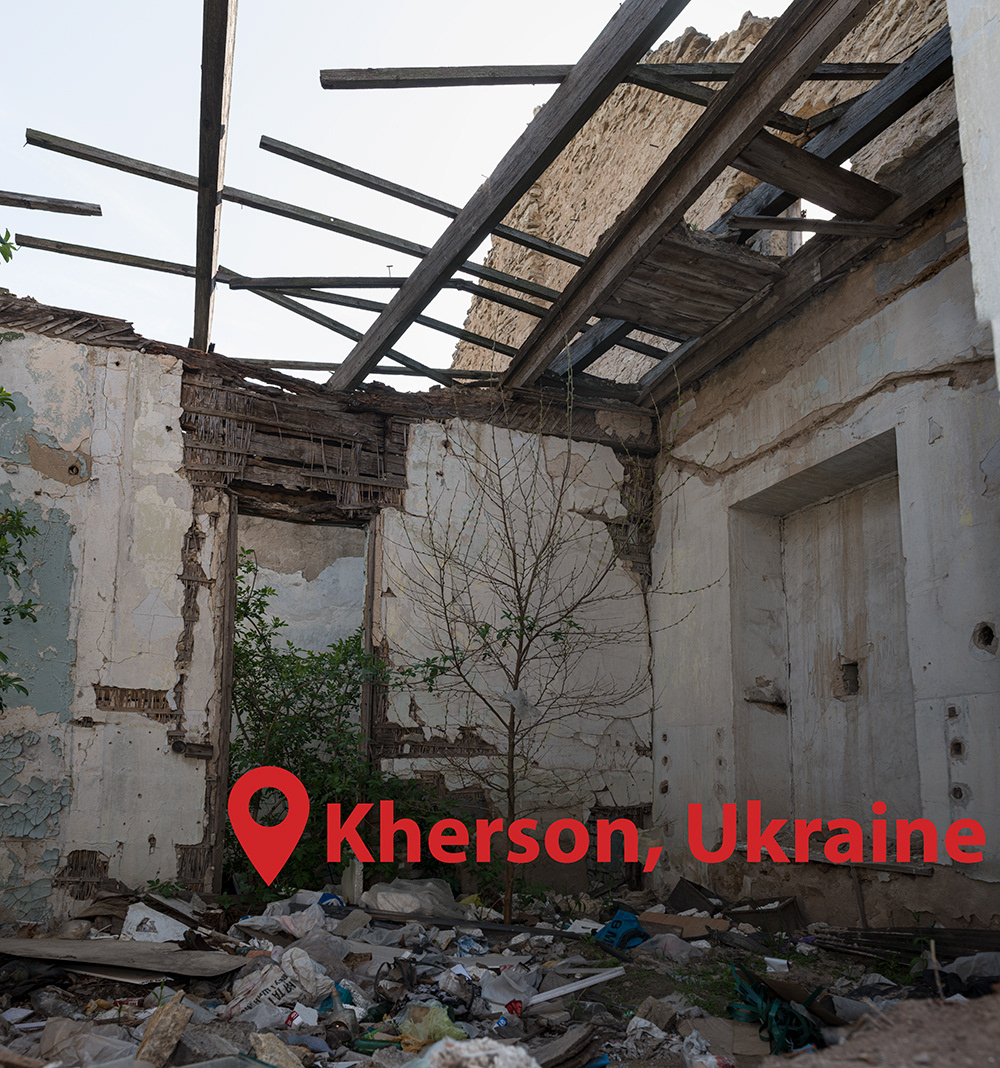
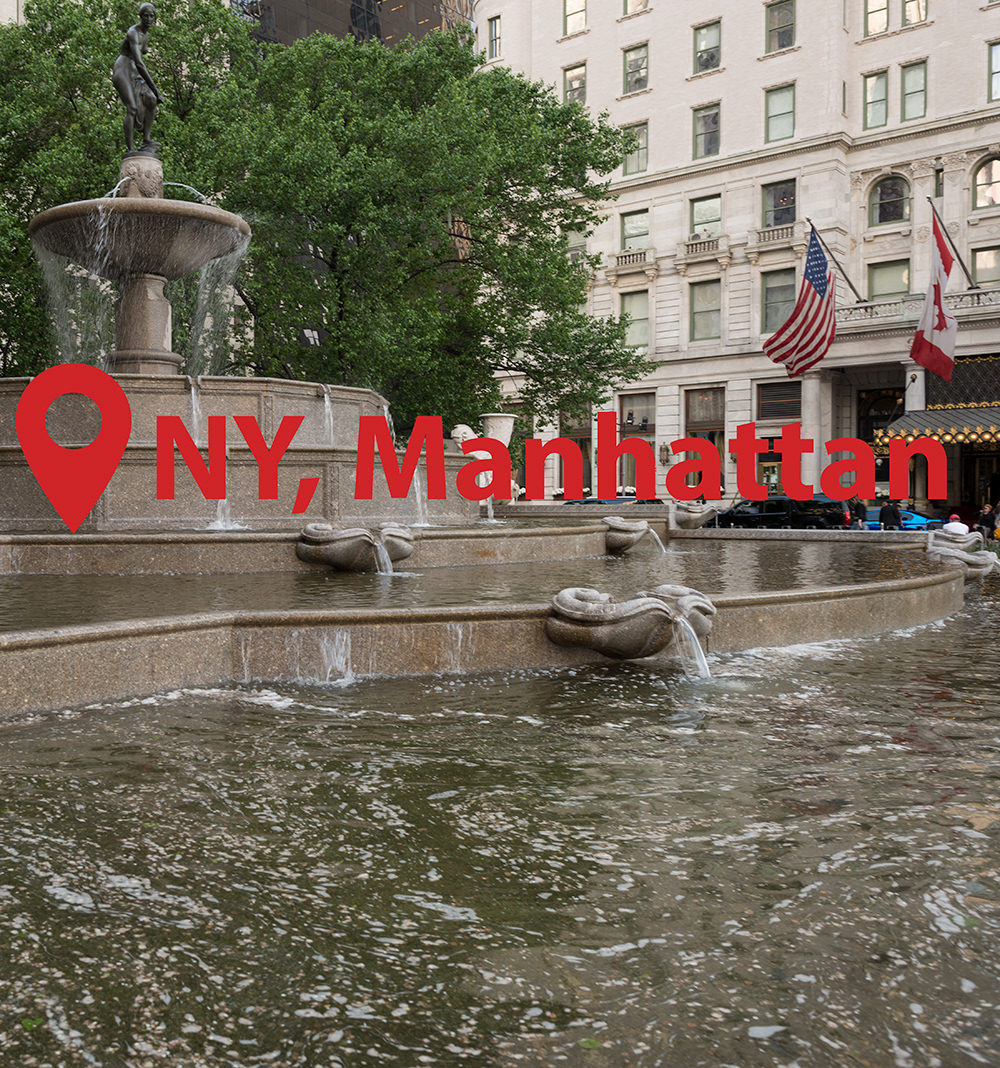
Bitter Taste
Digital photography. Limited edition prints 145 x 152 cm,
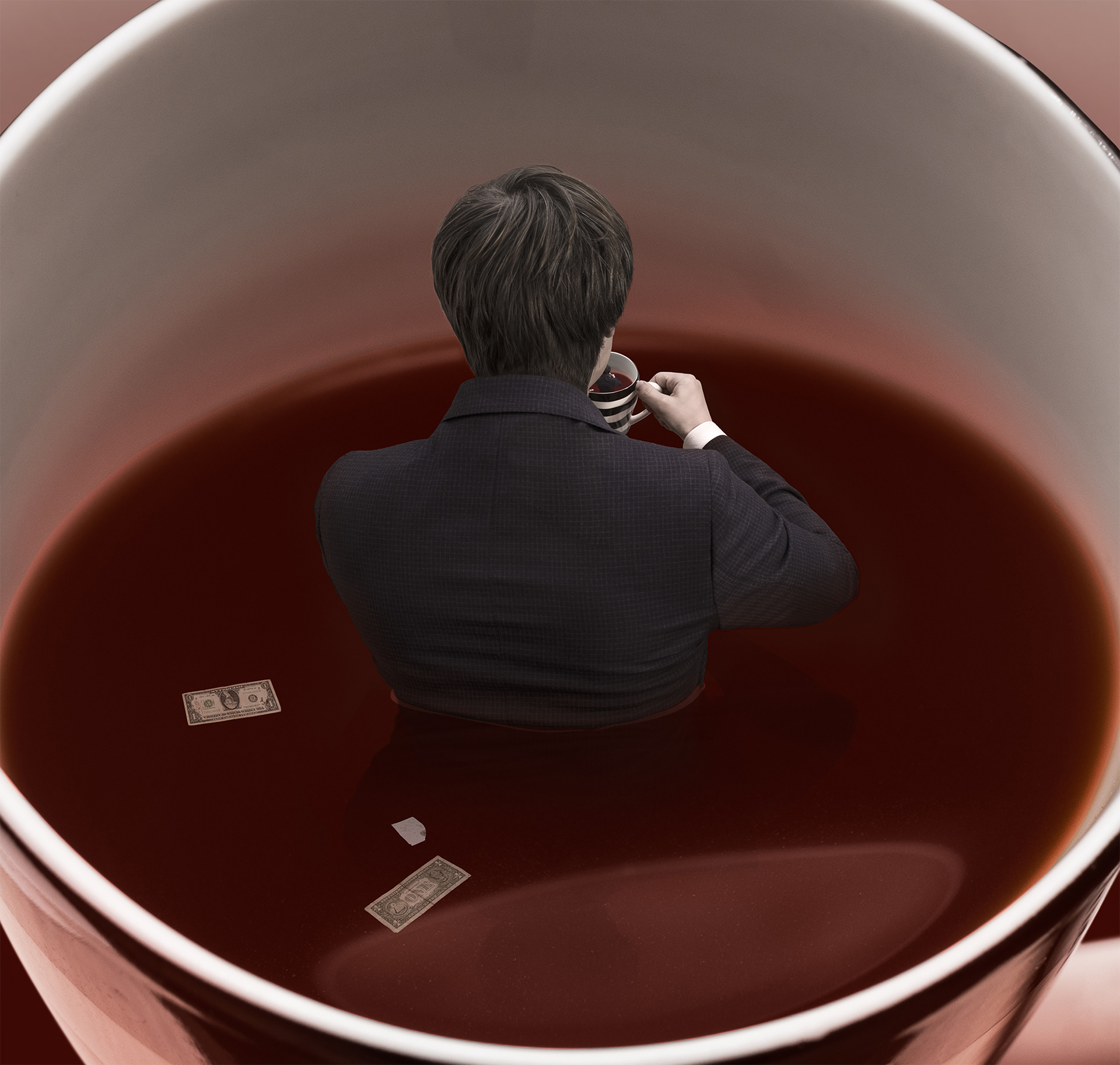
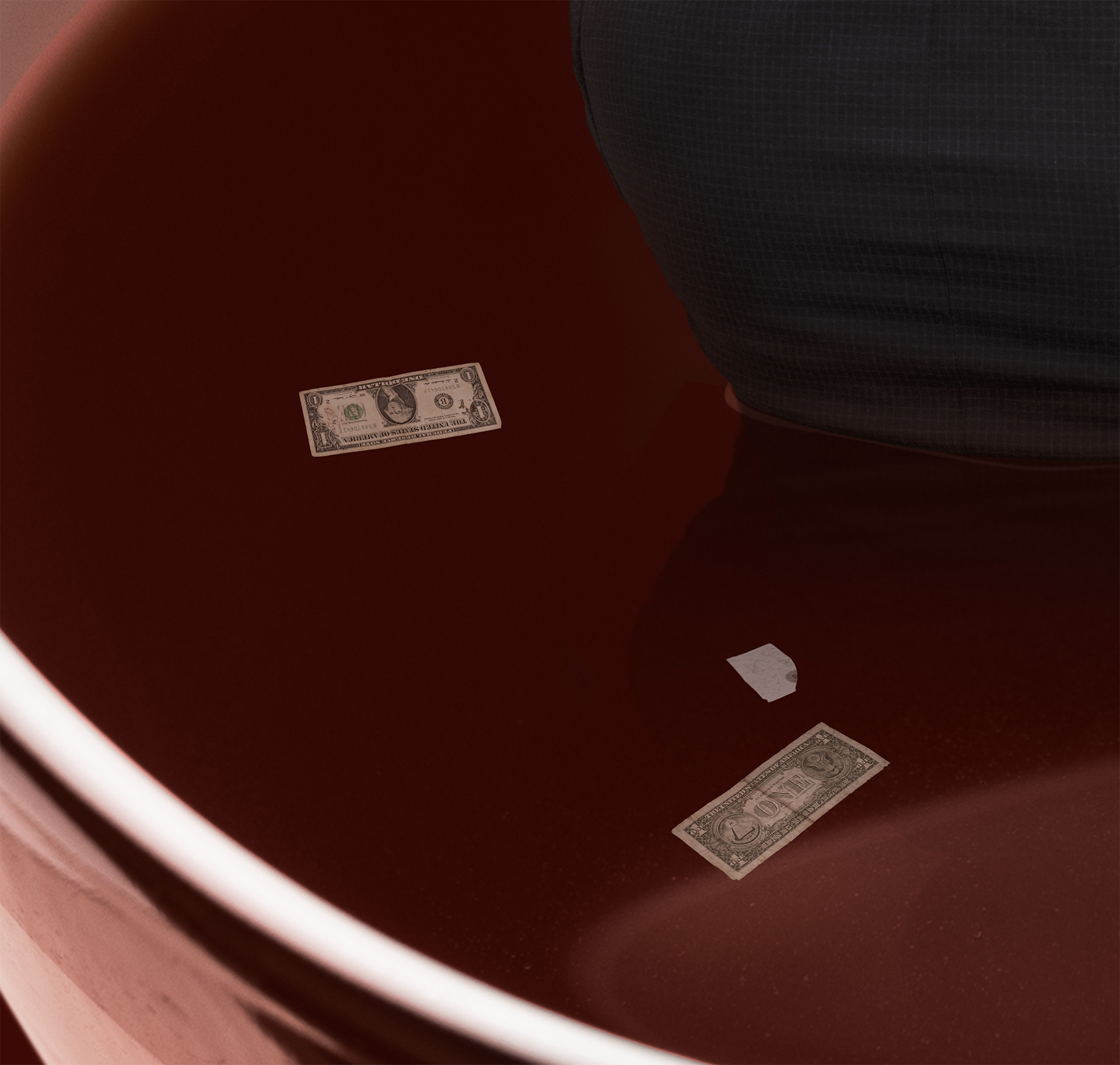
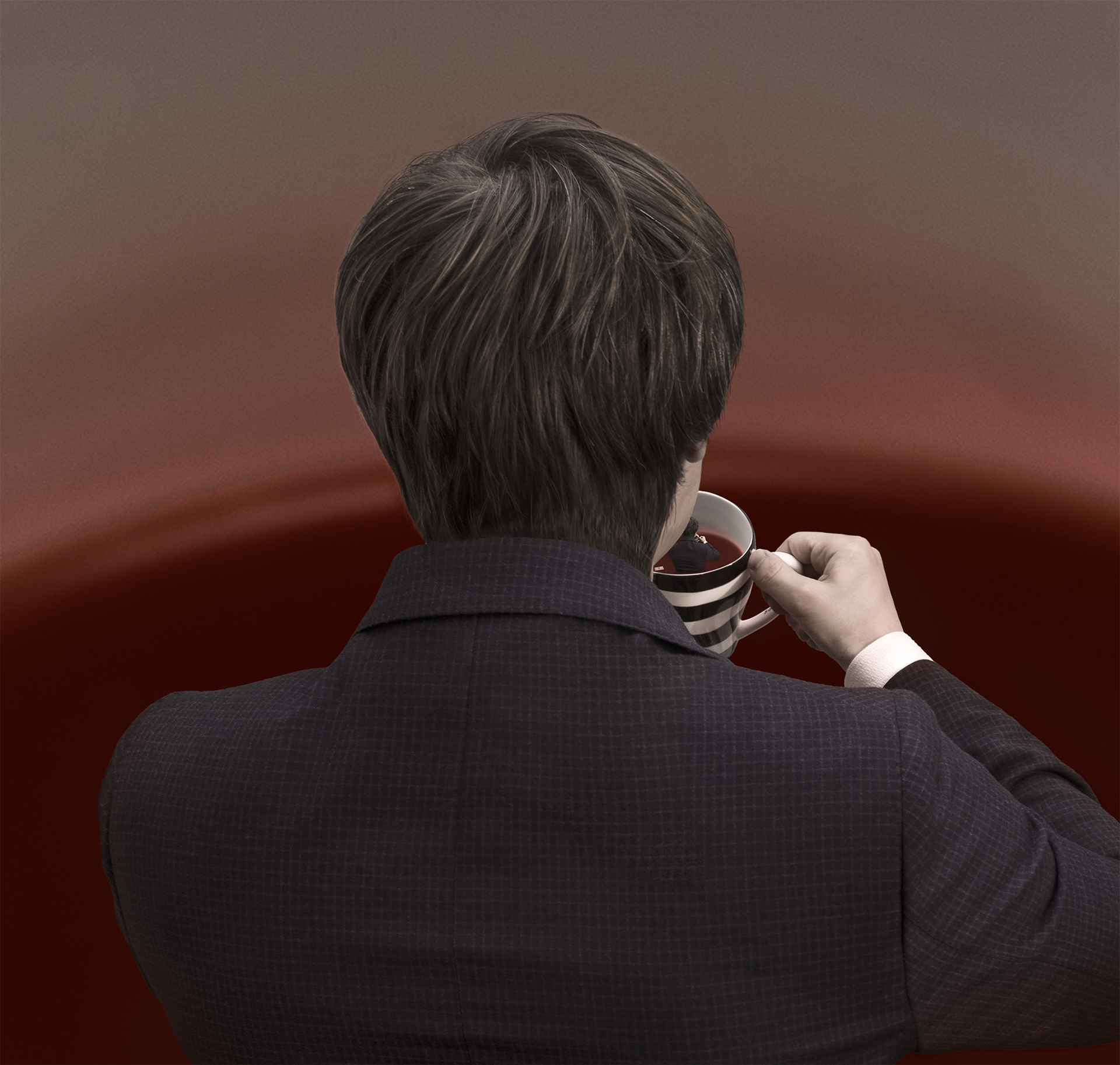
Coin Game
Digital photography. Limited edition prints 70 x 105 cm
Digital photography. Limited edition prints 99 x 112 cm

